
Protect Your Business with Antivirus Software!
Key Differences Between Internet Security and Antivirus. Scope of Protection: Internet security protects you in more ways, such as with a firewall, anti-phishing software, email security, and more. Malware is what antivirus software is designed to find and get rid of.
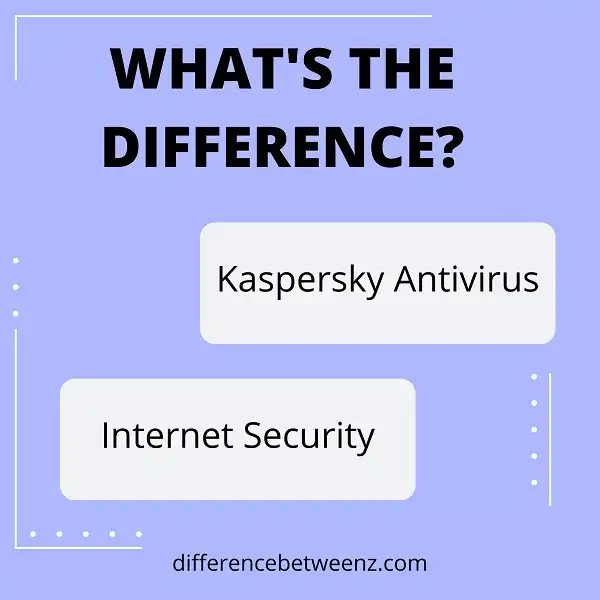
Difference between Kaspersky Antivirus and Security Difference Betweenz
In a previous article, we explained the difference between Kaspersky Total Security and Kaspersky Internet Security.Now, let's compare Kaspersky Internet Security and Kaspersky Anti-Virus. Kaspersky Anti-Virus offers basic security for your PC. Its feature set includes anti-virus scan for your software and files, activity monitoring, search for vulnerabilities and Internet traffic control.

Difference Between Antivirus And Antispyware Software
Internet security, on the other hand, alerts users and disables such dangerous URLs. Internet security software is either free or less expensive than antivirus software. Internet security, on the other hand, is more expensive than antivirus. Antivirus software does not include a firewall.

Difference Between Kaspersky Antivirus And Security
Summary. Antivirus software protects your device by scanning it and deleting any malware it finds (like adware, spyware, viruses, and worms). Internet security software includes antivirus software, but also adds online-focused features, like a firewall, password manager, and VPN. Today, they are often used interchangeably.

What’s the difference between Kaspersky AntiVirus and Kaspersky Security? Kaspersky
An antivirus program may find and delete viruses or other malicious files from a computer, whereas Internet Security is a collection of programs designed to safeguard users from hazards they may encounter online. IMPORTANT DISTINCTIONS. Internet Security package shields the computer against spyware, spam, phishing, computer worms, viruses, and.
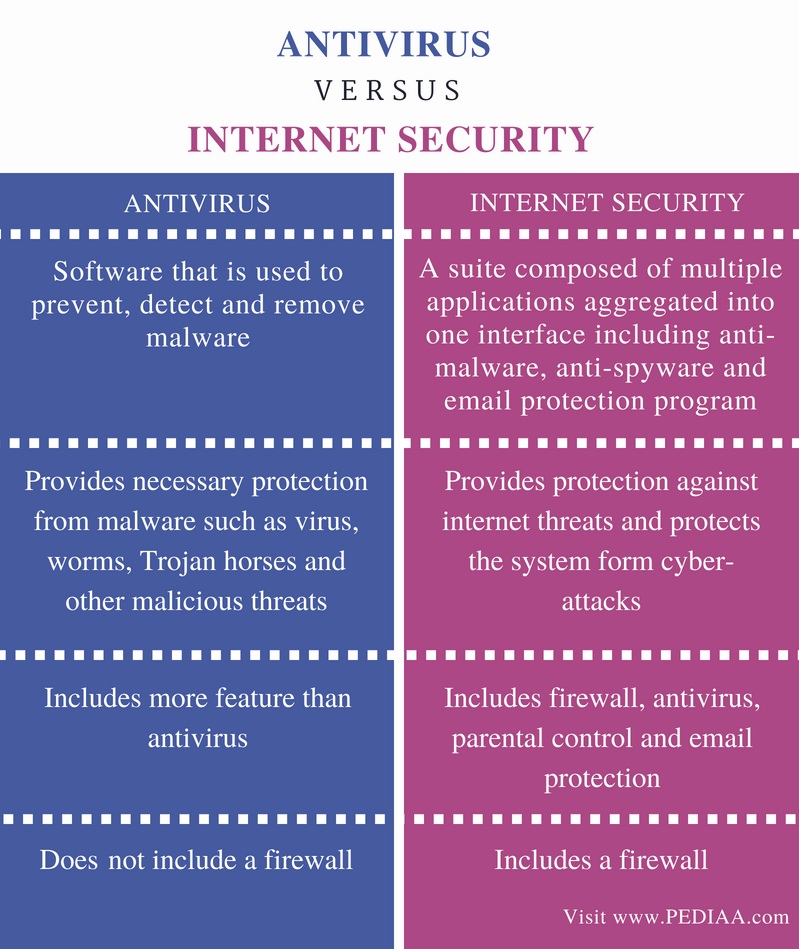
What is the Difference Between Antivirus and Security
Antivirus does not include firewall in its specifications. Internet Security does include firewall. Cost efficient. Antivirus software have both paid and free services, so they are comparatively cost efficient than Internet security. Internet Security is comparatively costlier as compared to Antivirus. Access.
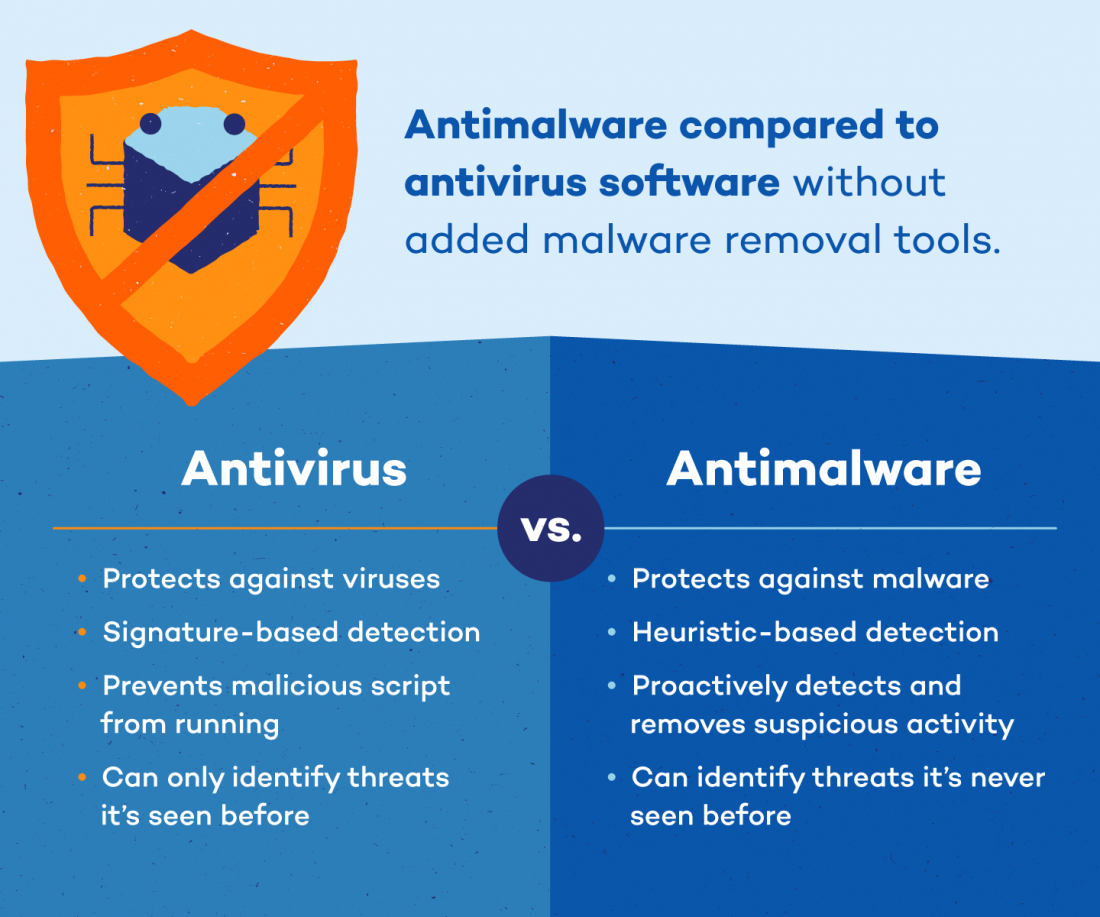
Difference Between Antivirus and Antimalware + Do I Need Both? Panda Security Mediacenter
A difference between antivirus and Internet security programs is the latter can be a bit costlier as compared to your standalone anti-virus programs found on your computer. But I tell you, the extra security features provided in an internet security suite software WILL GO A LONG LONG WAY to spare you from any heartbreak and headache in the future.

What is the Difference Between Antivirus and Security
This is a much more complicated task, and it is the main difference between antivirus and internet security. To protect your device online, internet security software must: (1) possess an updated log of all malicious software known to exist; and (2) monitor all website activities beyond what you download, because it is possible for you to not.
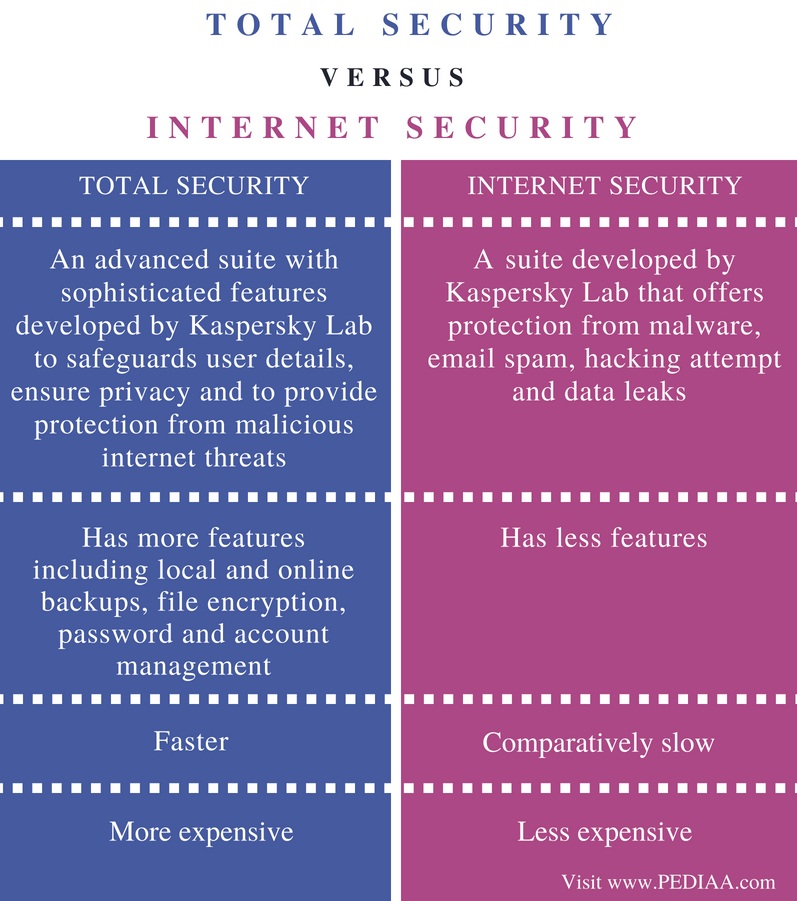
Difference Between Total Security and Security
Antivirus is used to eliminate or remove malicious software. Internet Security has the antivirus feature as well as some other features. 2. Firewall. Antivirus does not include a firewall. Internet security includes a firewall. 3. Cost. Antivirus is either free or less costly than internet security.
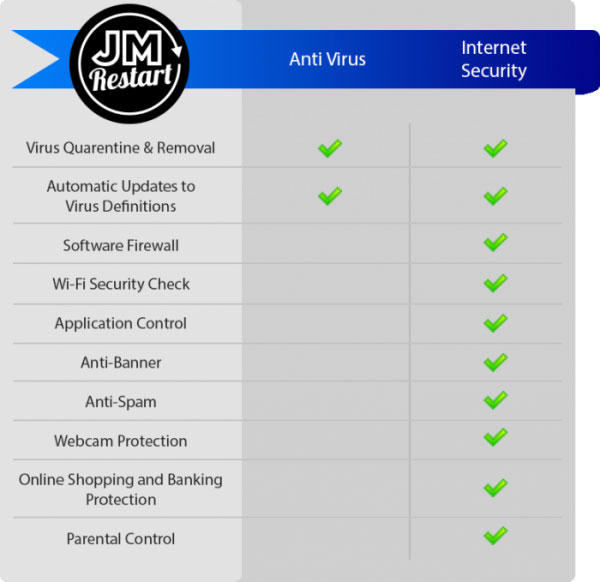
Residential IT Security IT Support Ipswich & Suffolk
While Kaspersky Anti-Virus doesn't have a firewall, both Internet Security and Total Security do. Overall, each Kaspersky program is a decent value, too. Both Anti-Virus and Internet Security come.

Antivirus vs Security What's the Difference Between Antivirus and Security
Summary: 1.Antivirus is a class of software that detects and cleans out virus infected files while Internet Security is a suite of applications that aims to protect users against threats from the internet. 2. Internet Security suites usually include an antivirus application among other programs. 3.Internet security suites commonly includes a.

Difference between Antivirus vs Security vs Total security in Assamese YouTube
That said, generally speaking, antivirus software is made for protection from offline threats. Firewall. When you see it from a deeper security point of view, Firewall is much different from antivirus programs you see out there. The first difference comes in terms of integration.
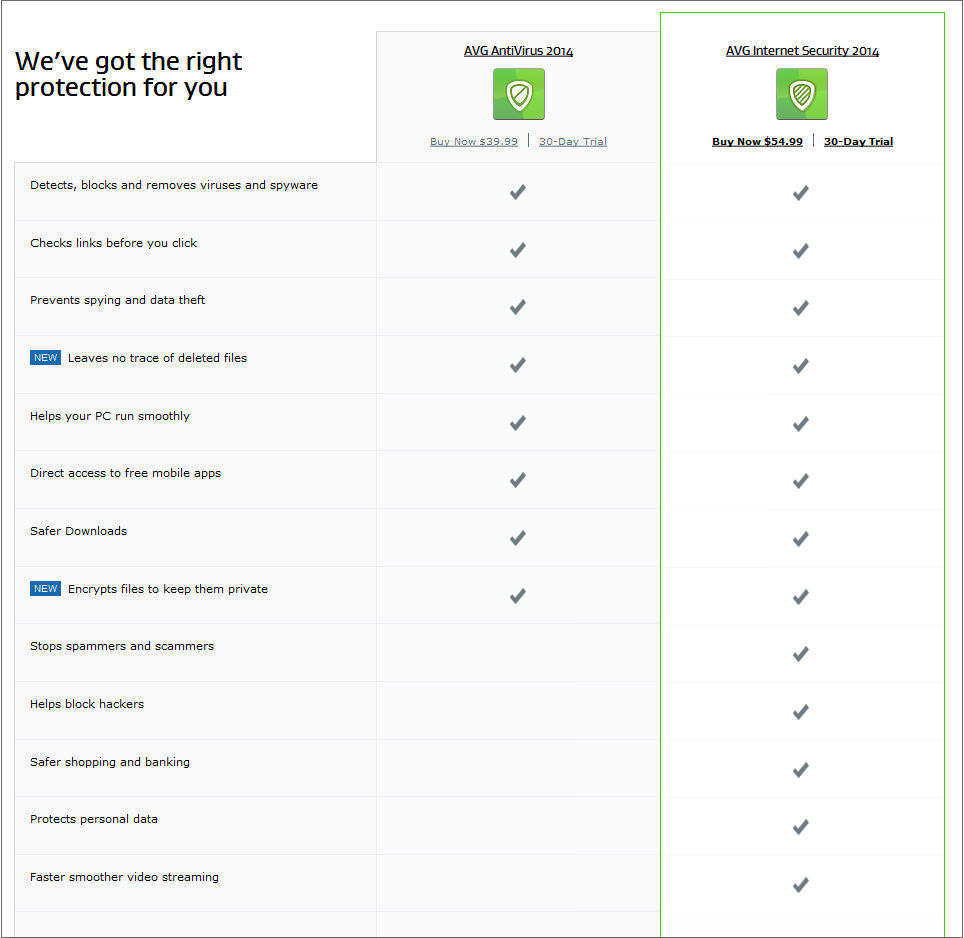
Free 365 Days Full Version AVG Security 2018 With Firewall Protection
Information security protects a variety of types of information. This includes digital data, physical records, and intellectual property (IP). Cybersecurity is a subfield of information security that protects computer systems and networks from cyberattacks. While cybersecurity covers all internet-connected devices, systems, and technologies.

What is The Difference Between Endpoint Security and Antivirus Software? PCH Technologies
While both antivirus and internet security software are designed to protect your computer from online threats, internet security software offers a more comprehensive range of protection. However, this additional protection often comes at a higher cost, and may not be necessary for all users. Ultimately, the choice between antivirus and internet.

The Difference Between Antivirus And Security Software.docx DocDroid
While both Kaspersky Anti-Virus and Kaspersky Internet Security offer protection against computer viruses, worms, trojans, adware, and spyware, there are some differences between the two products. The main difference is that Kaspersky Internet Security includes features not available in Kaspersky Anti-Virus.
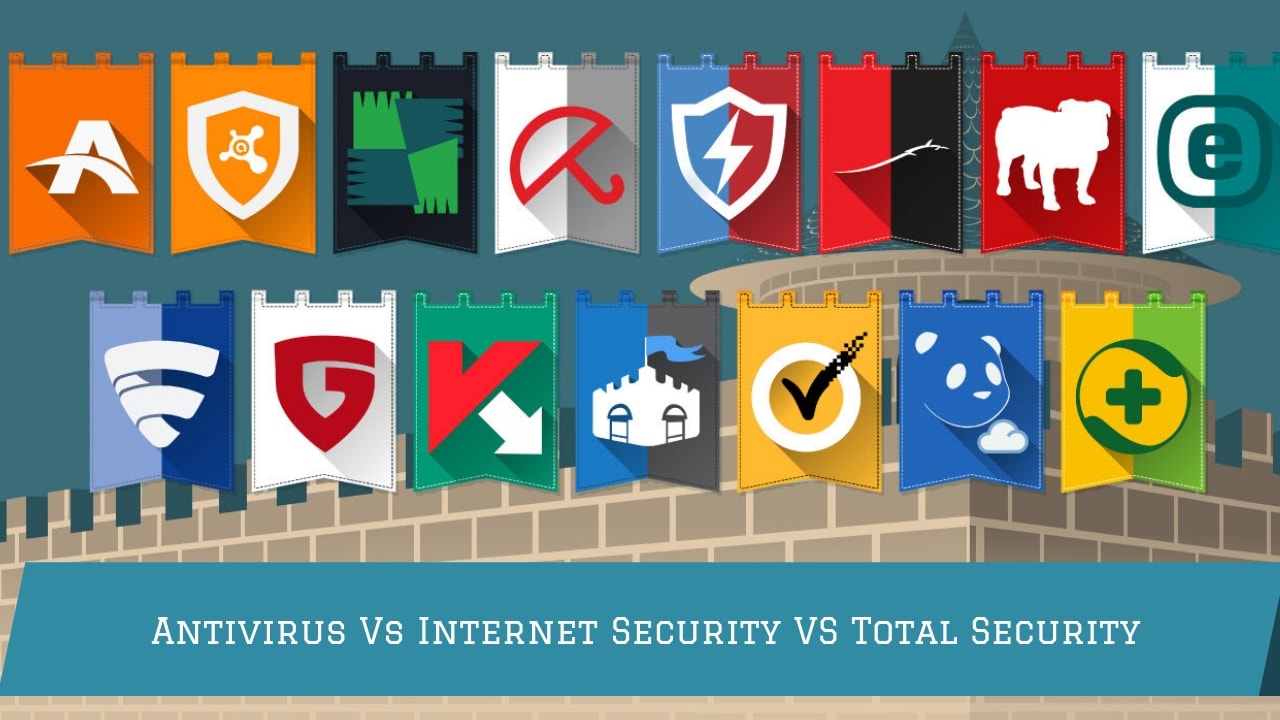
Antivirus Vs Security VS Total Security
Key Differences Between Antivirus and Internet Security. An antivirus is a software that can detect and remove viruses or infected files from the system while Internet Security is a suite that contains different applications aiming to protect users against threats from the Internet.